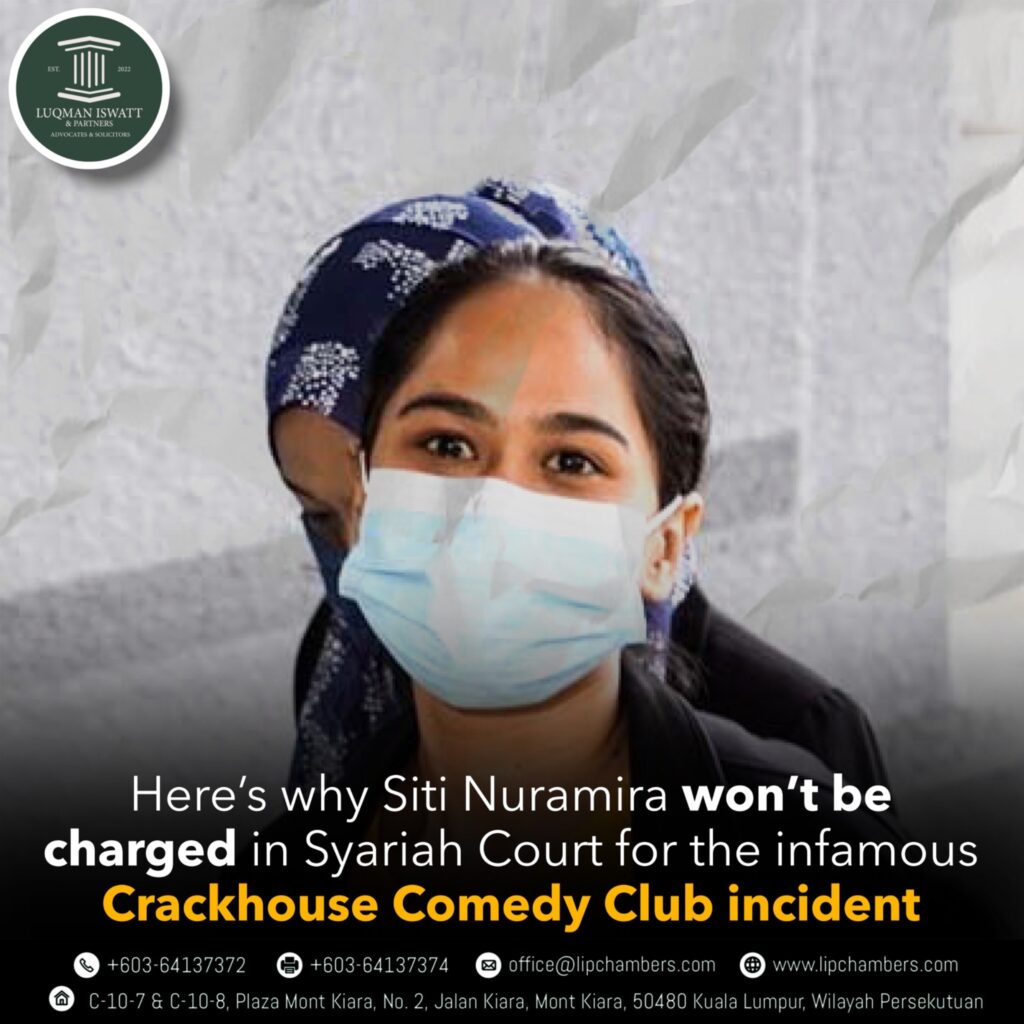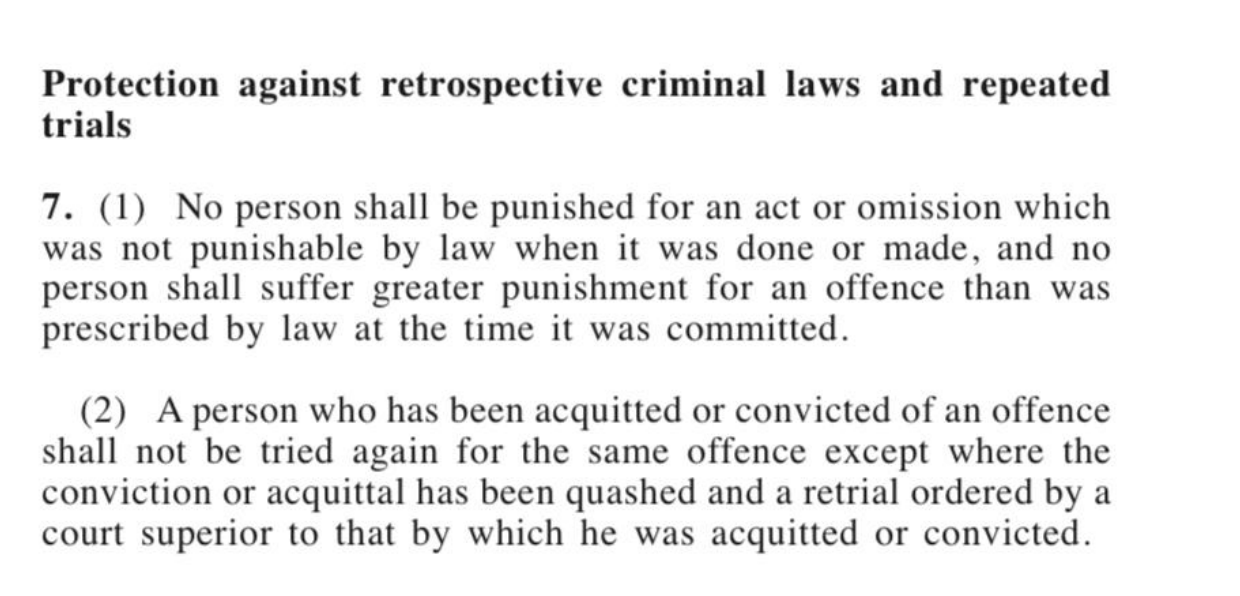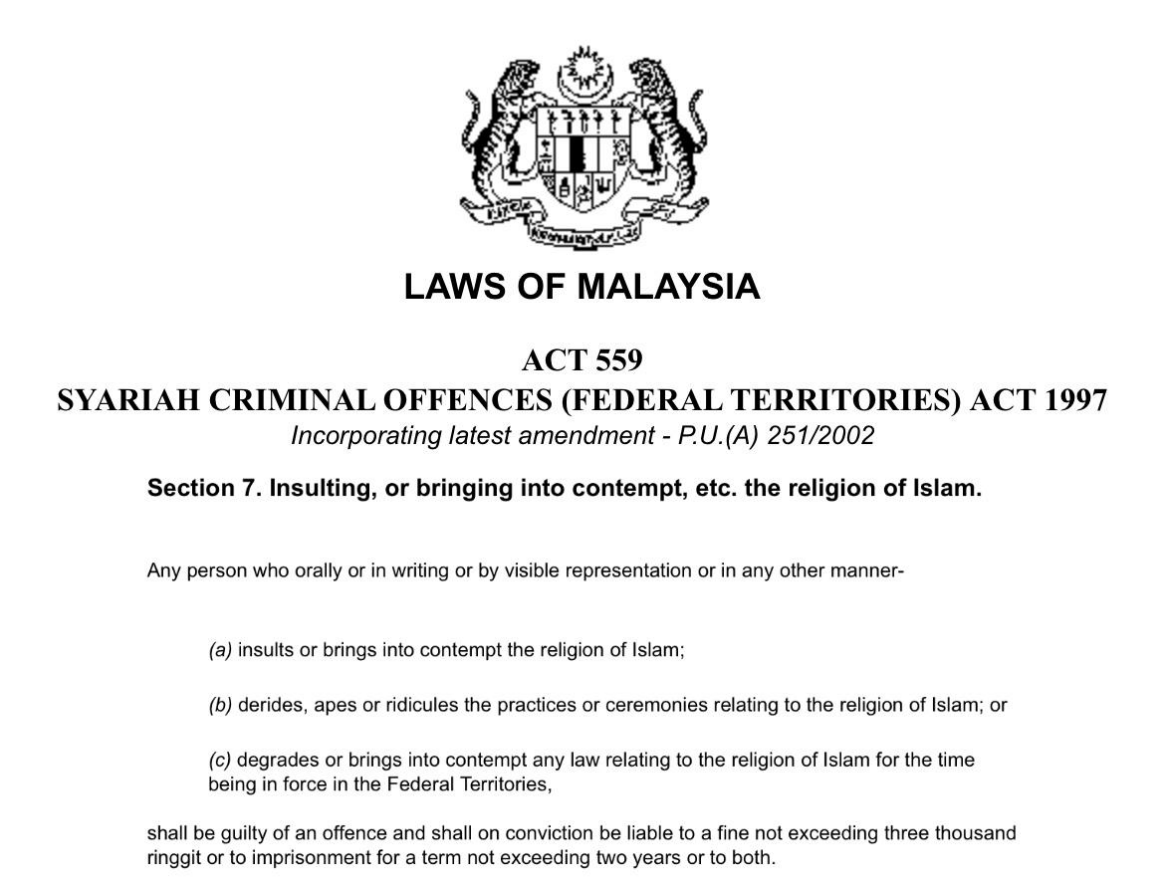
Comedy is no laughing matter in Malaysia recently thanks to an infamous incident that shocked the nation which took place at Kuala Lumpur’s Crackhouse Comedy Club. The catalyst of the hullabaloo is Siti Nuramira Abdullah, who in a viral video was seen on stage during open mic night at the said premise to perform a stand up comedy set that many would describe as offensive rather than funny.
She and her boyfriend, V. Alexander Navin who allegedly recorded and distributed the video have since been detained and subsequently charged at the Sessions Court on 13 July 2022 for causing disharmony and hatred. A few days later on 18 July, the couple posted the set bail of RM40,000 and were temporarily released.
However, just mere hours after her release on bail, Siti Nuramira was detained by the Federal Territory Islamic Religious Department (JAWI) on 19 July 2022 and subsequently released on bail again the same day. Following her release by JAWI, It was widely reported that she will be charged at the Syariah High Court too for the offence of insulting, or bringing into contempt, the religion of Islam.
The reports proved to be rather premature though as the Federal Territories (FT) Syariah Prosecution Department has since confirmed that the accused won’t face any charges at the Syariah Court due to several reasons. Many claimed that one of those reasons may have something to do with double jeopardy; an issue regarding the case which was first brought up by civil society organisation Sisters in Islam (SIS) in a statement issued on 15 July 2022.
SIS argued that charging the accused in both Syariah Court and Sessions Court may tantamount to double jeopardy. Hence, the organisation called upon the religious department of the Federal Territories to cease charging Siti in the Syariah Court.
Indeed, The FT Syariah Prosecution Department did cease the charging of the accused in the Syariah Court, but does proceeding with the charge really amount to double jeopardy? Or were there any other reasons behind the FT Syariah Prosecution Department’s decision?
Well, let’s examine the relevant laws and facts of the case to find out.
Protection against double jeopardy in Malaysia
In layman’s terms, double jeopardy is a procedural defence that prevents an accused from being tried again on the same charges following an acquittal or conviction. In Malaysia, protection against double jeopardy is enshrined under Article 7(2) of the Federal Constitution which states:
“A person who has been acquitted or convicted of an offence shall not be tried again for the same offence except where the conviction or acquittal has been quashed and a retrial ordered by a court superior to that by which he was acquitted or convicted.”

Article 7 of the Federal Constitution
Basically, the provision prescribes that all persons have immunity from repeated trials for the same offence and that no person should be subjected to subsequent criminal prosecutions if they have been tried in a criminal court and have been found guilty or acquitted of the same offence based on the same set of facts.
So, if Siti Nuramira were to be charged in both Sessions Court and Syariah Court for the same incident, does it amount to double jeopardy? Well, it all depends on whether both charges are similar to each other or charges in relation to different offences.
In Jamali Adnan v PP (1986), it was held that the accused in the case was tried for a ‘different offence’ from his previous trial hence there was no violation of the Constitution. The learned judge was of the view that ‘different offence’ means an offence in which the ingredients are not the same.
Furthermore, in Nadarajan a/l Somasundram (1994), it was held that ‘different offences’ could also be based on the same set of facts that was used and relied upon in the first trial. In this case, it is important to distinguish whether the Syariah offence charge potentially faced by Siti Nuramira in Syariah Court is the same as what she has already been charged with in the Session Court.
On 13 July 2022, the accused was charged in Sessions Court under Section 298A(1)(a) of the Penal Code. The provision is in regards to ‘Causing, etc., disharmony, disunity, or feelings of enmity, hatred or ill-will, or prejudicing, etc., the maintenance of harmony or unity, on grounds of religion’.
Meanwhile, it was widely reported that the FT Syariah Prosecution Department was set to charge Siti Nuramira in the Syariah High Court under Section 7 of the Syariah Criminal Offence Act 1997. For this particular offence, it is in regards to ‘Insulting, or bringing into contempt, etc. the religion of Islam’.

Section 7 of the Syariah Criminal Offences (Federal Territories) Act 1997
Comparing the two charges, it is clear that while they are based on the same facts, both are clearly different from each other. Therefore, based on Jamali Adnan v PP (1986) and Nadarajan a/l Somasundram (1994), should the charge in Syariah Court actually proceed, it won’t amount to double jeopardy.
Moreover, circling back to Article 7 of the Federal Constitution, it must be stressed that double jeopardy will only become an issue when there is a conviction or acquittal (autrefois acquit). As of right now, the accused has only been charged by the Sessions Court.
Well, the decision by the FT Syariah Prosecution Department to not pursue the charge was actually due to three factors. The first was based on the concept of ‘maqasid Syariah’ which emphasises the approach of discipline in the administration of Syariah crimes.
Since the charge in Sessions Court under Section 298A of the Penal Code provides for a heavier punishment compared to Section 7 of the Syariah Criminal Offence Act 1997, the department hopes that the heavier punishment could bring the accused back to true Islamic practices.
Secondly, while an investigation had already been initiated, the FT Syariah Prosecution Department can still choose not to pursue the charge. This is based on Section 58 (2) of Act 505 of the Administration of Islamic Law (Federal Territories( Act and Section 181 of Act 560 of the Syariah Criminal Procedure (Federal Territories) Act 1997.
Lastly, the department also decided that charging the accused in both Sessions and Syariah Courts is simply not the best course of action. Despite doing so won’t amount to double jeopardy, it may be argued that the whole process will be costly and redundant as a charge in Syariah Court will only achieve the same goal that’s already being pursued by the prosecution in Sessions Court.
Moving forward, all eyes will be on the trial in Sessions Court as this is a matter of public interest. In fact, given the circumstances of the incident, the case may become a catalyst for the federal government to amend the relevant laws in order to make the punishment for similar crimes more severe.
